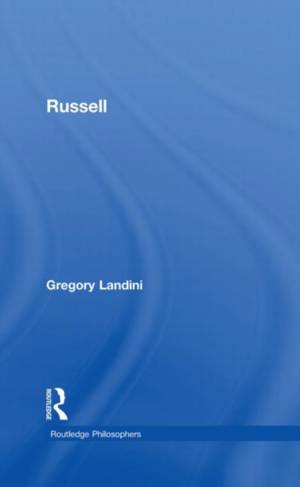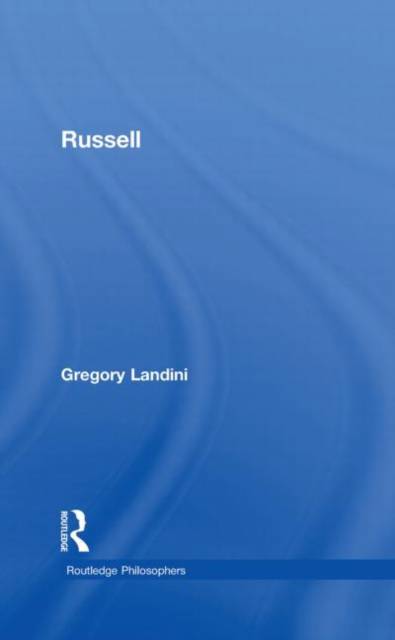
- Retrait gratuit dans votre magasin Club
- 7.000.000 titres dans notre catalogue
- Payer en toute sécurité
- Toujours un magasin près de chez vous
- Retrait gratuit dans votre magasin Club
- 7.000.0000 titres dans notre catalogue
- Payer en toute sécurité
- Toujours un magasin près de chez vous
Description
Bertrand Russell (1872-1970) was renowned as one of the founding figures of "analytic" philosophy, and for his lasting contributions to the study of logic, philosophy of language, philosophy of mathematics and epistemology. He was also famous for his popular works, where his humanism, ethics and antipathy towards religion came through in books such as The Problems of Philosophy, Why I am Not A Christian, and The Conquest of Happiness.
Beginning with an overview of Russell's life and work, Gregory Landini carefully explains Russell's philosophy, to show why he ranks as one of the giants of British and Twentieth century philosophy. He discusses Russell's major early works in philosophy of mathematics, including The Principles of Mathematics, wherein Russell illuminated and developed the ideas of Gottlob Frege; and the monumental three volume work written with Alfred North Whitehead, Principia Mathematica, where the authors attempted to show that all mathematical theory is part of logic, understood as a science of structure.
Landini discusses the second edition of Principia Mathematica, to show Russell's intellectual relationship with Wittgenstein and Ramsey. He discusses Russell's epistemology and neutral monism before concluding with a discussion on Russell's ethics, and the relationship between science and religion.
Featuring a chronology and a glossary of terms, as well as suggestions for further reading at the end of each chapter, Russell is essential reading for anyone studying philosophy, and is an ideal guidebook for those coming to Russell for the first time.
Spécifications
Parties prenantes
- Auteur(s) :
- Editeur:
Contenu
- Nombre de pages :
- 484
- Langue:
- Anglais
- Collection :
Caractéristiques
- EAN:
- 9780415396264
- Date de parution :
- 01-12-09
- Format:
- Livre relié
- Format numérique:
- Genaaid
- Dimensions :
- 140 mm x 216 mm
- Poids :
- 707 g

Les avis
Nous publions uniquement les avis qui respectent les conditions requises. Consultez nos conditions pour les avis.






